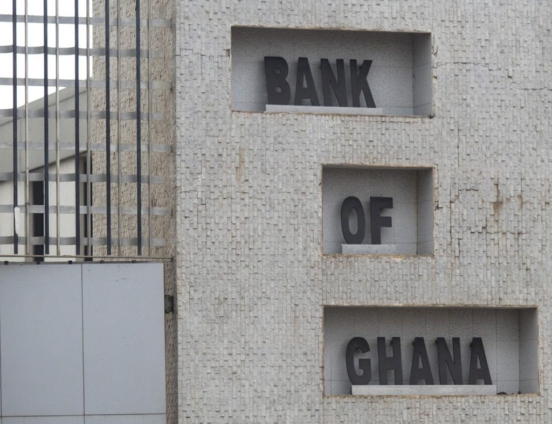Development Economist and Senior Lecturer at the University of Ghana Business School, Dr. Agyapomaa Gyeke-Dako, says the Bank of Ghana’s decision to increase the monetary policy rate will make Ghanaian bonds even more attractive for international investors.
She explained that the increment of the monetary policy rate – the rate at which the Central Bank lends to commercial banks – will cause an increase in the interest rate which will make non-resident holders of domestic debt reinvest into the economy through local bonds.
According to her, this will make Ghana’s bonds competitive in the face of countries such as the UK and the US; also increasing their monetary policy rates and attracting investors.
Speaking on JoyNews’ PM Express, Dr. Gyeke-Dako said such a move has set Ghana on the path to stabilizing the cedi.
“Now we see an increase in the monetary policy rate obviously leading to an increase in the interest rate and this will cause domestic bonds to become more attractive.
“And once domestic bonds become attractive, and also bearing in mind like I said earlier, that UK and the US have also increased their rates, it’s important for us to also remain competitive so that our currency can be stabilized in a way.
“Because if we are able to keep the non-resident holders of domestic debt from taking away the capital that they invested in here, it helps us in way. It helps stabilize our currency,” she said.
She added that “Mind you, the problems we are having as far as the fuel is concerned, apart from us experiencing an increase in the world market prices of oil, also comes from the fact that our currency is depreciating because remember importers also need some foreign currency in order to be able to import the fuel in here.
“And once our currency is depreciating, we feel it at the pumps. So if we are able to do something about our currency depreciation it also helps release some of us or it releases all of us from the pressures we’re currently facing.”
Dr. Gyeke-Dako, however, noted that the move will put business owners in a tight spot as loans will become expensive as a result.
“So yes tightening up in a way will affect us because for the business person they’re going to struggle a bit as far as interest rates are concerned but they’re balancing that against our current situation and then making the best choice. I think that is what the central bank has done,” she said.
Her comments are in reaction to the Monetary Policy Committee of the Bank of Ghana increasing the policy rate – the rate at which it lends to commercial banks – by 2.5% to 17%.
This is the first time since November 2018 that the rate has gone up so high.
The decision is due to the current pressures on the economy, the uncertainty about the economic outlook and developments in Russia – Ukraine, which has pushed fuel prices to increase astronomically.
The move to adjust the base lending rate of the Central Bank is expected to control the rising inflation and check the rapid depreciation of the cedi.
However, cost of loans is expected to go up with immediate effect. This means cost of living and cost of doing business is expected to go up, whilst consumer spending will decline.
In addition to the upward policy rate adjustment, the Bank of Ghana with effect from April 1, 2022, enforce some measures in relation to universal banks.
This will include an increase in cash reserve to 12%, whilst the Capital Conservation Buffer is reset to the pre-pandemic level of 3% making the Capital Adequacy Ratio a total of 13 percent.
The provisioning rate for loans in the Other Loans Exceptionally Mentioned (OLEM) category is also reset to the pre-pandemic level of 10%.
Latest Stories
-
KTU Radio to participate in Bank of Ghana training workshop
2 hours -
Akwaboah to release new single ‘Smile Again’ featuring Nadia Buari
3 hours -
Actress Matilda Asare graduates from KNUST with Master’s degree
3 hours -
Ghana reaffirms global leadership in anti-corruption at UN Summit in Vienna
3 hours -
Practicing quality mental health on construction sites
4 hours -
Eric Opoku urges AU-EU to prioritize innovation for food security at ministerial conference in Rome
4 hours -
Stanbic Bank joins BRIDGE-in Agriculture programme to drive inclusive agricultural growth
4 hours -
Food Safety: Veterinary Services raises alarm over unsafe food handling
4 hours -
I won’t follow your path in correcting falsehoods – CJ removal petitioner tells Torkornoo
4 hours -
Can Ghana consolidate gains of economic stability and growth experienced under Dr. Asiamah?
5 hours -
I’m not doing music professionally – Diana Hamilton
5 hours -
Spice Events wins big at Omega Psi Phi Fraternity Tournament
5 hours -
This Saturday on Newsfile: CJ probe, EC heads removal talks, BoG staff termination
5 hours -
EC mustn’t serve as both regulator and auditor of political party finances – OSP
5 hours -
KNUST graduates first MSc Petroleum Engineering cohort
6 hours

